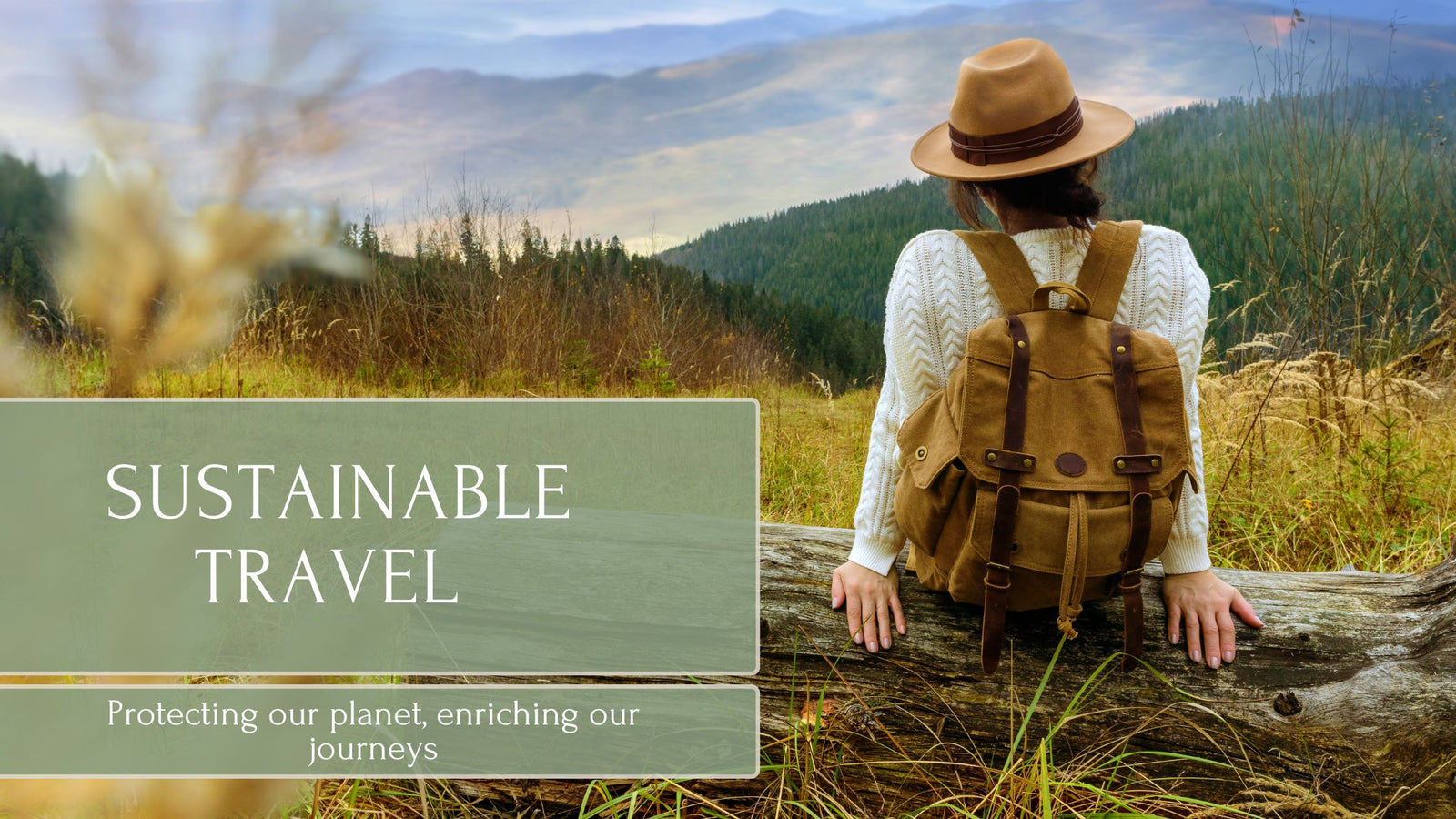Sustainable travel

What is sustainability?
Sustainability has become a buzzword, and you hear it everywhere nowadays. It’s in our business plans, lifestyle choices, and policy making. This word isn’t just trendy; it’s vital to make efforts to protect our planet and improve life for everyone.
According to the dictionary, sustainability is defined as the ability to be maintained at a certain rate or level. It refers to the avoidance of the depletion of natural resources to maintain an ecological balance. Essentially, it’s about enduring and supporting long-term ecological health. But what does that really mean when it comes to our ability to become sustainable as human beings? How does this relate to our relationship with nature, with planet earth?
The Brundtland Report titled "Our Common Future" and published in 1987 by the UN’s World Commission on Environment and Development, offers the most famous definition of sustainability through what they called sustainable development: "Development that meets the needs of the present without compromising the ability of future generations to meet their own needs.”
Simply put, Sustainability is the understanding that everything we need for survival and well-being comes from our natural environment. It means building a future where all can flourish and thrive. It involves maintaining a balance where human activities do not deplete or harm the natural environment, ensuring that resources are available for the next generations, long term. In essence, it’s about creating harmony between our needs and the health of our planet.
What is sustainable travel, and how can we minimize waste while having more genuine experiences?
Exploring new and exciting destinations, whether close to home or across the globe, can be incredibly fulfilling. As we immerse ourselves in different cultures and landscapes, it's essential to think about the impact our visit has on the places and the people we encounter. As tourism continues to rise, with 2024 expected to surpass the 2019 record of 1.5 billion international arrivals (UNWTO), sustainable travel is crucial to protect the Planet's resources and its inhabitants.
The UN tourism agency defines sustainable travel as: "Tourism that takes full account of its current and future economic, social and environmental impacts, addressing the needs of visitors, industry, the environment and host communities". More simply, I would say that sustainable travel means exploring the world in a way that respects and protects the environment, supports local economies, and preserves cultural heritage. It’s about minimizing our carbon footprint, using eco-friendly and biodegradable products, and choosing accommodations and activities that prioritize sustainability. Basically, it’s traveling in a way that leaves the places we visit as beautiful and vibrant as we found them—or better.
If traveling sustainably means making choices that lessen the impact of tourism on the planet and local communities, here is how we can do our part while having more genuine experiences:
First, Pack Light and Smart. Bring only the essentials with you, including reusable and eco-friendly items like water bottles, shopping bags, and toiletries to cut down on single-use plastics. Try to Choose Green Stays, which are hotels and lodgings with green certifications. They practice energy conservation, recycling and water-saving measures. Or, opt for campsites that practice sustainable methods. You will feel wonderful, trust me.
Please support local businesses! It is easy. Dine at local restaurants, buy handmade arts, crafts and souvenirs and hire local guides. Who is better than the locals to show you around? This boosts the local economy and gives you a much more authentic experience.
Make sure you travel Efficiently. Use public transport, bike, or walk whenever possible. For longer distances, consider trains over planes or offset your carbon emissions if flying is necessary. Also, you will get to meet many other travelers and locals this way and have wonderful experiences.
ALWAYS respect Nature: This is essential for a conscious traveler. Be aware, look around, stick to marked trails, avoid disturbing wildlife, and leave no trace of your visit.
You can save resources: Be mindful of your water and energy use. Every place you visit has its own resources and guidelines. Turn off lights and electronics when not in use and take shorter showers.
Be wise- learn and Engage: Take the time to learn about the culture, history, and environment of the places you visit. Engage respectfully with locals and participate in community-based tourism activities. You will discover that the world holds endless adventures and possibilities waiting for you to seize and enjoy.
Embracing these practices not only safeguards the environment and uplifts local communities, but also enhances your travel experiences, infusing them with deeper meaning and lasting memories.

What do sustainability and sustainable travel mean to me?
On a more personal note, I believe that everything we are and everything that surrounds us is precious. Our body is our home, which we sustain through healthy practices, beautiful clothes, restful sleep, and good nutrition—taking care of it so it can take care of us in return. Our house is also precious, and we sustain it by keeping it neat, clean, and fresh, ensuring that everything has its place. We fill our homes with things that make us feel like we belong, and ideally, we take care of it every day. We put our time and energy towards sustainable living, whether it’s through recycling, maintaining our home beautifully, or nurturing our bodies.
It makes sense, then, that the Earth, which gives us these wonderful opportunities for a fulfilling life, needs the same level of care, time, and energy to thrive. Traveling gives us the chance to explore and learn about our world—its richness of landscapes, experiences, cultures, and resources. Sustainable travel means practicing the same awareness we use to care for our bodies and homes to nurture the marvelous places and lands we journey through. This, indeed, is a precious responsibility and a privilege.

